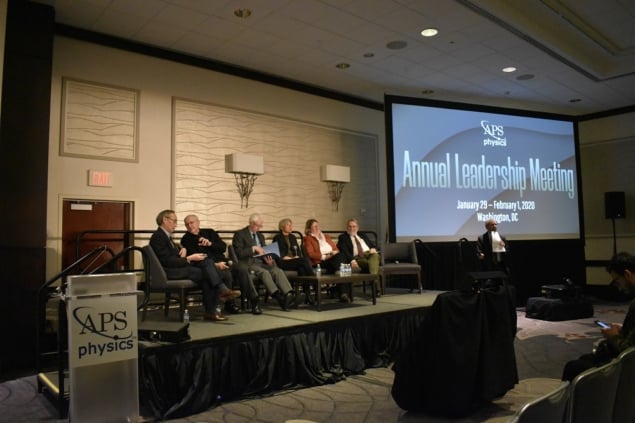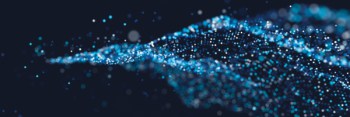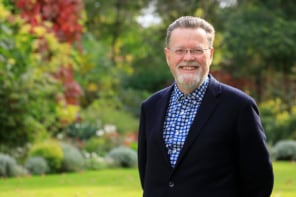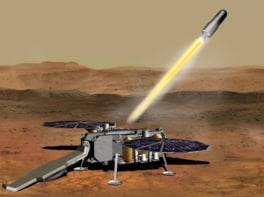
Senior physicists descended on Washington, DC last week with political uncertainty at an all-time high with the UK about to leave the European Union and the US still gripped by the impeachment trial of President Trump. The American Physical Society (APS) annual leadership meeting, which was held from 29 January to 1 February, saw leading scientists come together to discuss a range of topics with a focus around this year’s theme of international cooperation and competition.
The opening day saw panel discussions that tackled travel restrictions, obstacles facing collaboration as well as how financial uncertainty affects research funding. In a keynote address, Nobel laureate Steven Chu from Stanford University discussed both collaboration and competition. He touched on the uncertain support for basic research and the difficulties that arise when working with researchers from China where results can sometimes be published prematurely with some Chinese scientists even being under surveillance from the state.
Chu, who served as energy secretary from 2009 to 2013, also highlighted the increased difficulties for foreign students to study at US universities and continue working in the country as well as how clamping down on the ability of scientists to travel impacts science, in which immigrants have played a large role. For example, he showed that 31% of US Nobel prize winners in physics were immigrants. APS chief executive Kate Kirby explained that the APS is currently lobbying the US government to help ease restrictions on the F1 visa that would make it easier for students to stay in the country once they get their degree.
Yet there were also some bright spots for collaboration. David Reitze, executive director of the Laser Interferometer Gravitational-Wave Observatory (LIGO), described how it has benefited from contributions by hundreds of individuals from outside the US who are a vital part of the LIGO Scientific Collaboration. “I am very encouraged by this meeting because it affirms the importance of international collaboration and how important it is for scientists from all over the world to get together to talk and exchange ideas,” Reitze noted. “Barriers to communication and exchange of information will compromise our ability to do the science.”
The meeting also saw Philip Bucksbaum from Stanford University officially become APS president, succeeding Nobel laureate David Gross from the Kavli Institute for Theoretical Physics in Santa Barbara, who held the position last year.



